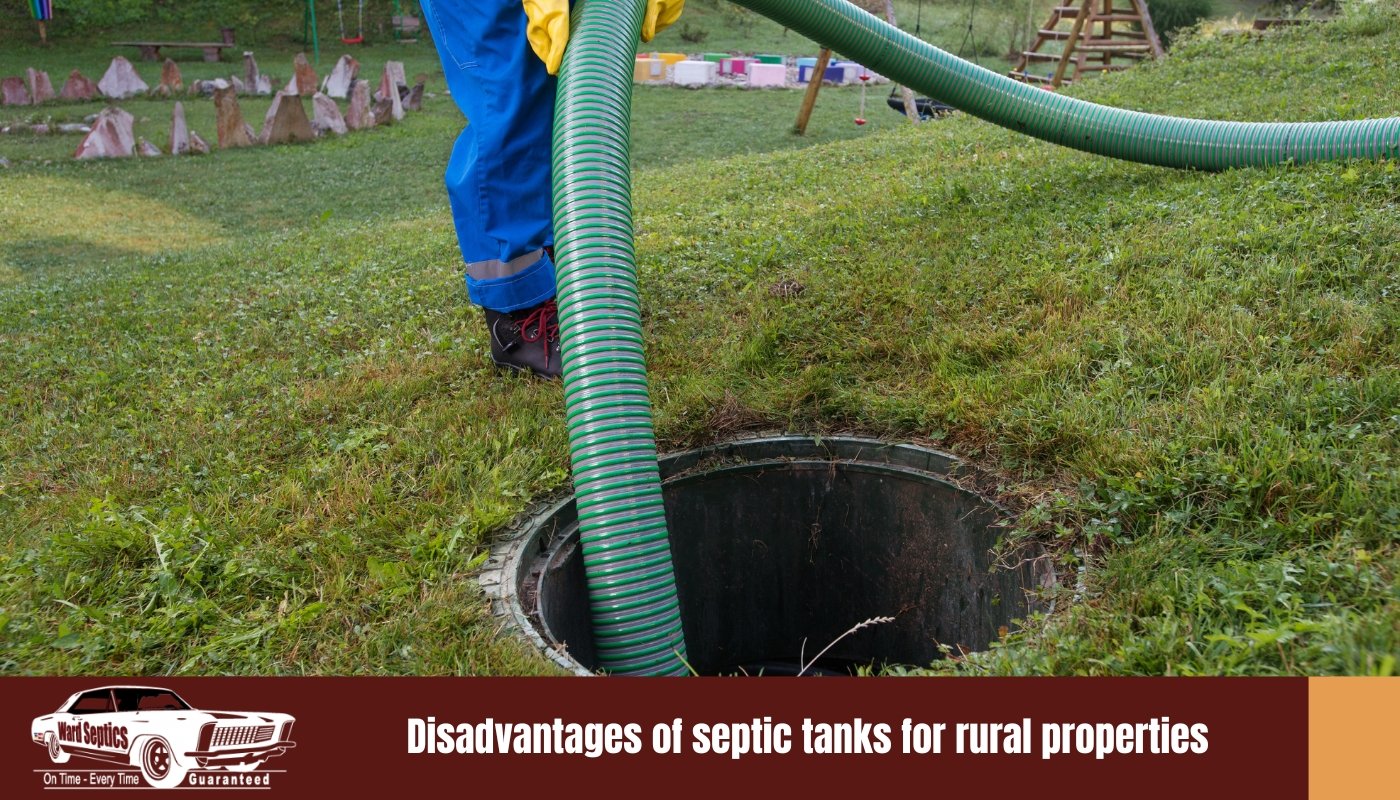Septic tanks are underground wastewater treatment systems commonly used in rural properties where access to a centralised sewer system is not available. These systems are designed to collect and treat household wastewater, including toilet waste, kitchen sink waste, shower water, and laundry water.
In rural areas, septic tanks are often the most practical and cost-effective solution for managing household wastewater. They are typically made of concrete, fiberglass, or plastic and are designed to hold and treat wastewater before discharging it into the soil through a drain field.
Septic systems work by breaking down the solids in wastewater using a combination of natural bacteria and physical processes. The solids settle to the bottom of the tank, while the liquid waste flows out of the tank and into the drain field, where it is naturally filtered through the soil.
While septic systems can be a reliable and efficient way to manage household wastewater in rural areas, they require regular maintenance and careful use to ensure they function properly. It is important to understand the advantages and disadvantages of septic tanks before deciding if they are the right choice for your rural property.

Advantages of septic tanks for rural properties
Septic tanks offer several advantages for rural properties. Here are some of the most notable advantages:
- Cost-effective – Installing a septic tank is often more cost-effective than connecting to a centralised sewer system, especially in remote or rural areas. Septic systems typically require less maintenance and have a longer lifespan than centralised sewer systems.
- Environmentally friendly – Septic tanks are designed to treat wastewater on-site, which means they do not require extensive transportation or treatment facilities. When properly maintained, septic systems can help protect the environment by preventing contamination of groundwater and surface water.
- Flexibility – Septic tanks can be customised to fit the specific needs of a rural property. They can be designed to handle varying levels of wastewater output and can be adapted to suit different soil types and topography.
- Independence – Rural properties with septic tanks are not dependent on centralised sewer systems, which can be prone to failures or outages. With a septic tank, homeowners have control over their wastewater treatment system and can ensure that it is properly maintained.
- Increased property value – A well-maintained septic system can increase the value of a rural property. Buyers may be more interested in properties with septic systems in place because they offer independence and lower long-term costs compared to centralised sewer systems.
Overall, septic tanks offer several advantages for rural properties, including cost-effectiveness, environmental sustainability, and flexibility. With proper maintenance and care, a septic system can provide reliable wastewater treatment for many years.

Disadvantages of septic tanks for rural properties
While septic tanks offer many advantages for rural properties, there are also some disadvantages that homeowners should be aware of. Here are some of the most notable disadvantages:
- Maintenance – Septic tanks require regular maintenance to ensure they are functioning properly. This includes regular pumping of the tank to remove solid waste and regular inspections to check for leaks or other issues. Failure to properly maintain a septic tank can result in costly repairs or replacement.
- Malfunction – Septic tanks can malfunction due to a variety of factors, including excessive water usage, clogs in the drain field, or damage to the tank. Malfunctioning septic tanks can cause unpleasant odours, sewage backups, and other health hazards.
- Potential environmental risks – Improperly maintained or malfunctioning septic tanks can contaminate the environment, including groundwater and surface water. This can pose health risks to people and animals and can have long-term environmental consequences.
- Limitations on water usage – Septic tanks have a limited capacity and can only handle a certain amount of wastewater at a time. This means that homeowners with septic tanks may need to limit their water usage to prevent overloading the system.
- Cost of installation – While septic tanks can be cost-effective in the long run, the initial installation costs can be high, especially if the property requires a specialised system or extensive site preparation.
Overall, septic tanks require regular maintenance and can pose environmental and health risks if not properly maintained or functioning properly. Homeowners considering a septic tank for their rural property should carefully consider the potential disadvantages and consult with a qualified professional to determine the best option for their needs.

Factors to consider before installing a septic tank
Installing a septic tank is a major decision for rural property owners, and several factors should be considered before proceeding with the installation. First, a site evaluation is necessary to determine if the property is suitable for a septic tank. Factors such as soil type, slope, and water table depth will influence the design and installation of the septic system. Additionally, local regulations may dictate the type and size of septic system that is allowed on the property, so it’s important to consult with the local health department or a qualified septic professional.
It’s important to also note that rural classified properties will often be pre-approved for a septic system on purchase of the land or pre-existing property where an existing system isn’t present. It’s best to consult a septic expert as well as your real estate when you are considering purchasing a rural property to determine the property classification and whether it is zoned for septic system use.
Another important factor to consider is the amount of water used in the home. The size of the septic tank required will depend on the household size and water usage, so it’s essential to consider these factors to avoid overloading the septic system. Homeowners should also consider the ongoing maintenance requirements and costs associated with septic tanks, such as regular pumping and inspections, and budget accordingly. Finally, future for the property, such as adding onto the home or building additional structures, should be taken into account when designing the septic system.

Is a septic tank right for your rural property?
Deciding whether a septic tank is right for a rural property requires careful consideration of several factors. One of the most important factors is the location and site suitability of the property. A septic system requires suitable soil and proper drainage, so a site evaluation is necessary to determine if the property is suitable for a septic tank. Other factors to consider include local regulations, the amount of water used in the home, maintenance requirements and costs, and future plans for the property. By carefully considering these factors and consulting with a qualified professional, homeowners can determine if a septic tank is the right choice for their rural property.
If you’re looking for reliable septic tank installation, cleaning, and maintenance services, don’t hesitate to contact Ward Septics. Our team of professionals is dedicated to providing top-notch septic services that will help keep your system running smoothly for many years to come. Contact us today to schedule a septic tank cleaning or inspection!








